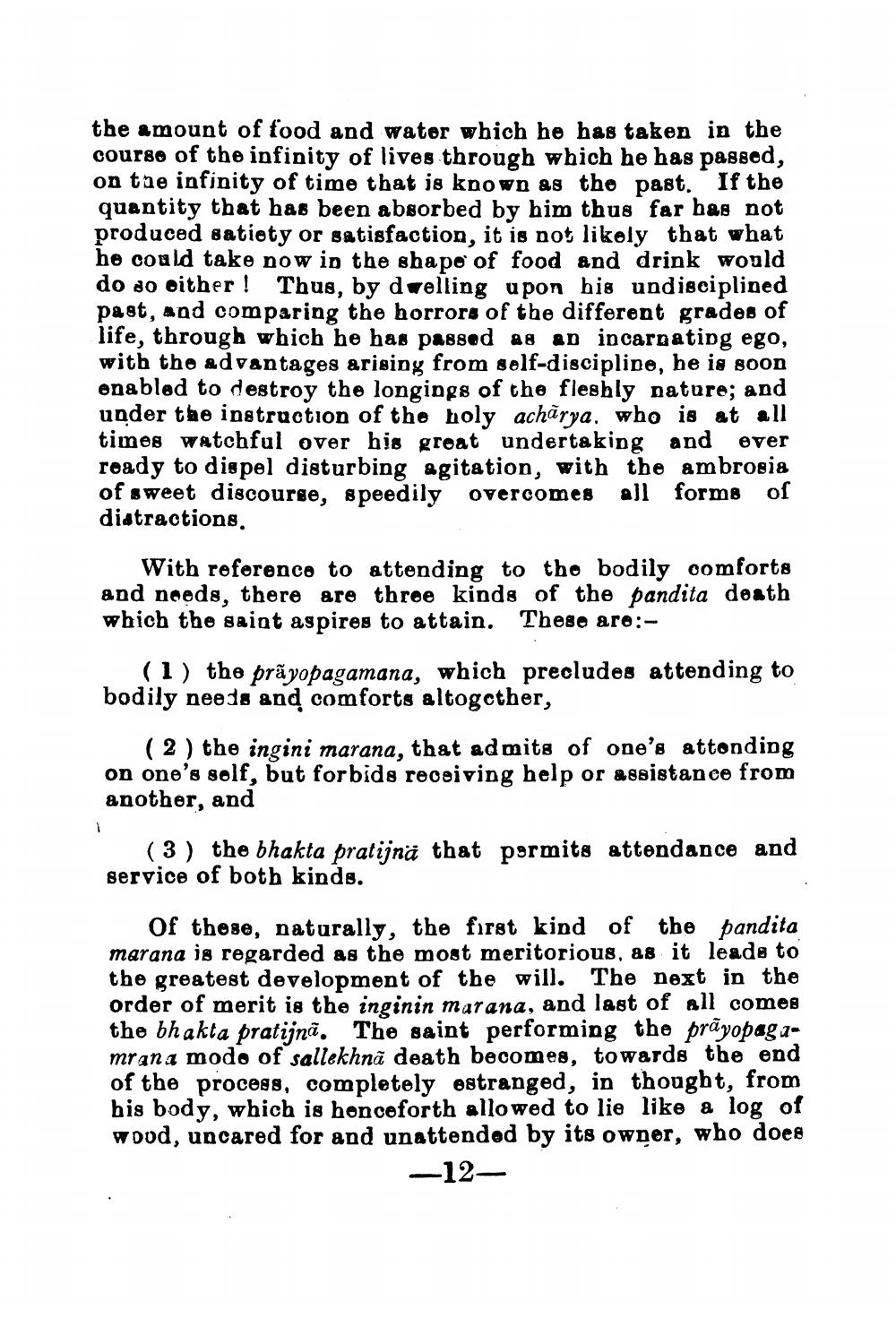________________
sed 800,
the amount of food and water which he has taken in the courso of the infinity of lives througb which he has on the infinity of time that is known as the past. If the quantity that has been absorbed by him thus far has not produced satiety or satisfaction, it is not likely that what he could take now in the shape of food and drink would do so oither! Thus, by dwelling upon his undisciplined past, and comparing the horrors of the different grades of life, through which he has passed as an incarnating ego, with the advantages arising from self-discipline, he is soon enablod to destroy the longings of the fleshly nature; and under the instruction of the holy acharya. who is at all times watchful over his great undertaking and over ready to dispel disturbing agitation, with the ambrosia of sweet discourse, speedily overcomes all forms of distractions,
With reference to attending to the bodily comforts and noods, there are three kinds of the pandita death which the saint aspires to attain. These are:
(1) the prãyopagamana, which precludes attending to bodily needs and comforts altogether,
( 2 ) the ingini marana, that admits of one's attonding on one's solf, but forbids receiving help or assistance from another, and
(3) the bhakta pratijnä that permits attendance and service of both kinds.
Of those, naturally, the first kind of tbe pandita marana is regarded as the most meritorious, as it leads to the greatest development of the will. The next in the order of merit is the inginin marana, and last of all comes the bhakta pratijnã. The saint performing the prāyopagamrana modo of sallekhnă death becomes, towards the end of the process, completely estranged, in thought, from bis body, which is honceforth allowed to lie like a log of wood, uncared for and unattended by its owner, who does
-12




